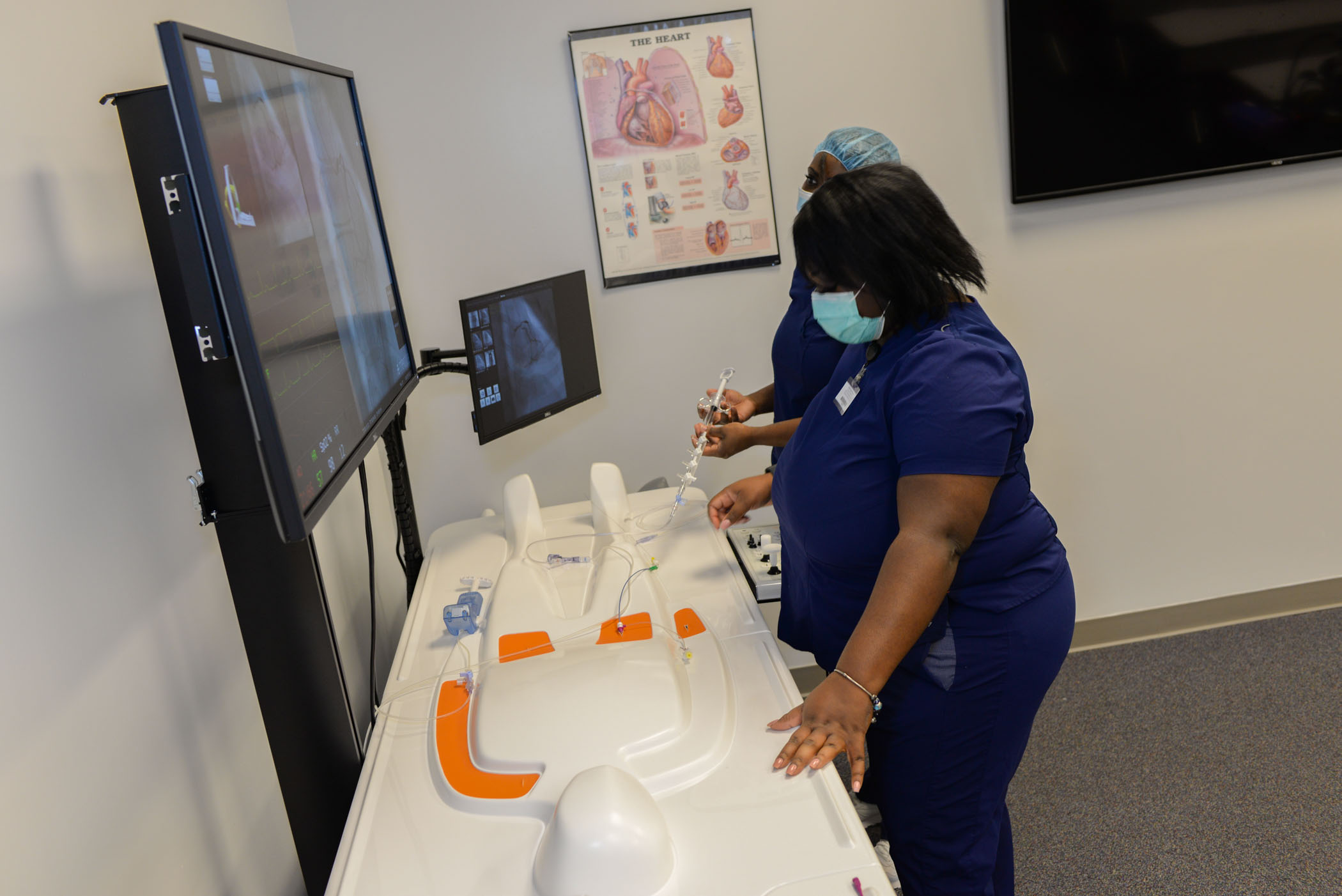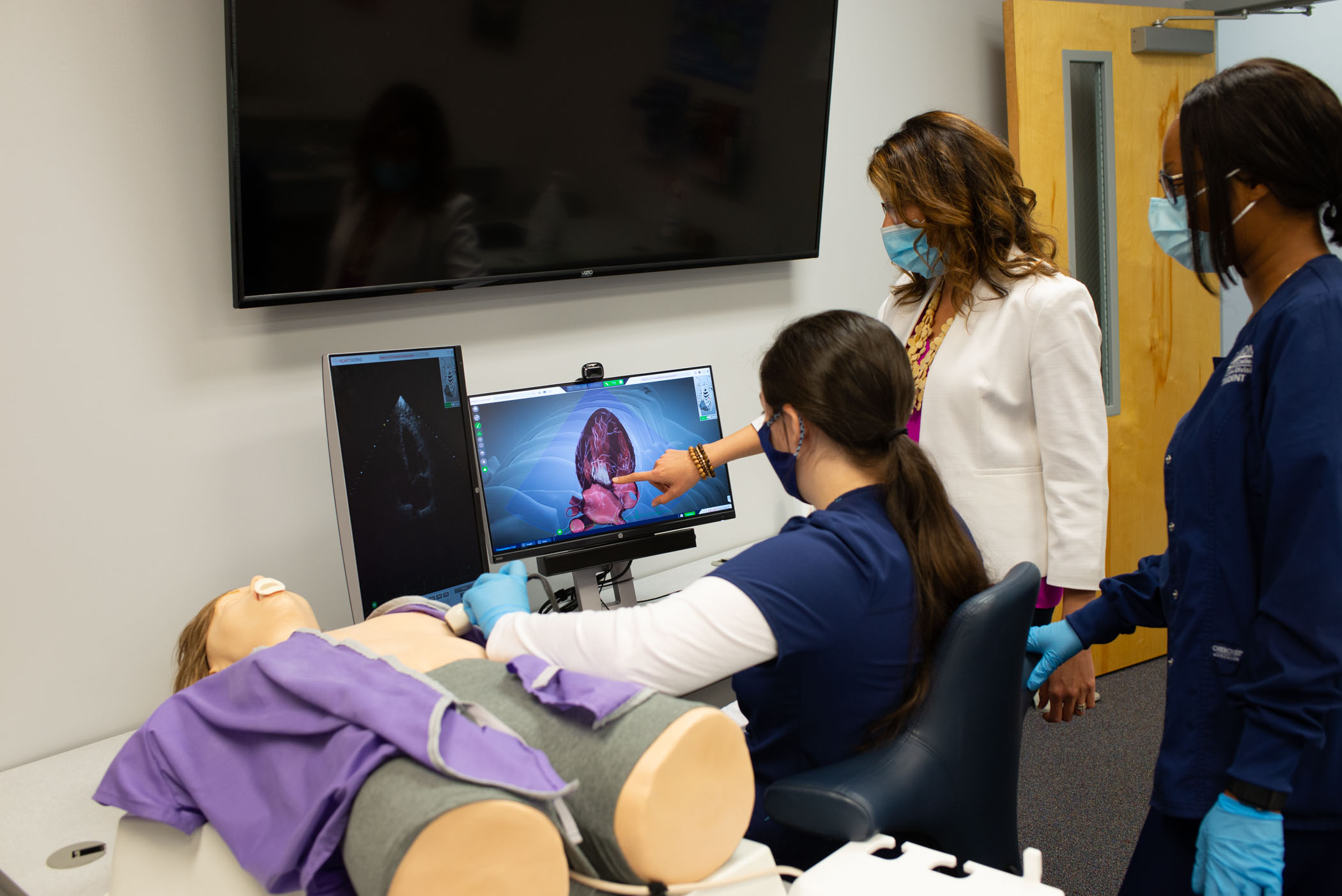Catheterization Simulator Aiding Cardiovascular Technology Students at PTC
July 18, 2021The students have named him “Keanu,” which seems somehow appropriate for the brand-new catherization simulator that has been used to train its first cohort this spring semester at Piedmont Technical College (PTC). Contained in the body of a high-tech mannequin, the simulator enables students to conduct procedures as closely as can be approximated to the real clinical setting as possible. It’s a scenario right out of The Matrix.
 “I like for each class to name the mannequin,” Cardiovascular Technology (CVT) Invasive Program Instructor Lena Scott said. “This semester, it was ‘Keanu.’ We also have another, ordinary lab mannequin, an older lady we call ‘Geri.’”
“I like for each class to name the mannequin,” Cardiovascular Technology (CVT) Invasive Program Instructor Lena Scott said. “This semester, it was ‘Keanu.’ We also have another, ordinary lab mannequin, an older lady we call ‘Geri.’”
Scott says Keanu looks very much like an actual patient in front of the operator, and images of the procedure in progress ― such as a coronary intravascular ultrasound or the implantation of a stent ― appear on a computer screen.
“Each student has their own profile on the simulator,” Scott explained, “and I can track what they are doing. They log in and complete cases each day when they are here.”
“The simulator is great. It gives you an idea of what to expect and the process to expect,” PTC student Jacob Childress said. “It also gives you the foundation of what to expect for the angiograms. It will show different angulations and what to expect when it is done in the Cath Lab. Previously this would not have been possible; it would have just been pictures. This has been a great help identifying lesions during procedures at the hospital.”
As a former clinician herself with many years of experience in practice, Scott says the simulator is as authentic as it can be.
“I think it’s a great simulation of what to expect when you actually get in the clinical setting,” she said. “I think to have the patient in front of you is the biggest factor in that.”
Scott says her students love the simulator and would much rather be working on the simulator than sitting in a lecture.
 “They are grateful for the opportunity to do interventions before they go out into the clinical setting,” she said. “In addition, the simulator communicates radiation levels. That’s important because we can’t ‘see’ radiation. It helps us teach about radiation safety.”
“They are grateful for the opportunity to do interventions before they go out into the clinical setting,” she said. “In addition, the simulator communicates radiation levels. That’s important because we can’t ‘see’ radiation. It helps us teach about radiation safety.”
“The Cath simulator has been a great tool to learn about the projections, the coronaries under fluoroscopy and the process to expect in the Cath Lab,” Childress added.
For more information about PTC’s Cardiovascular Technology Program, go to www.ptc.edu/cardio.
The full-term fall semester runs from August 23 to Dec. 10, 2021. Students are invited to apply online at www.ptc.edu/apply, or they can contact admissions at 855-682-7094 to set up an appointment. Those who register by July 15 can waive the standard $25 registration fee and receive a voucher worth $300 for textbooks and related materials.













